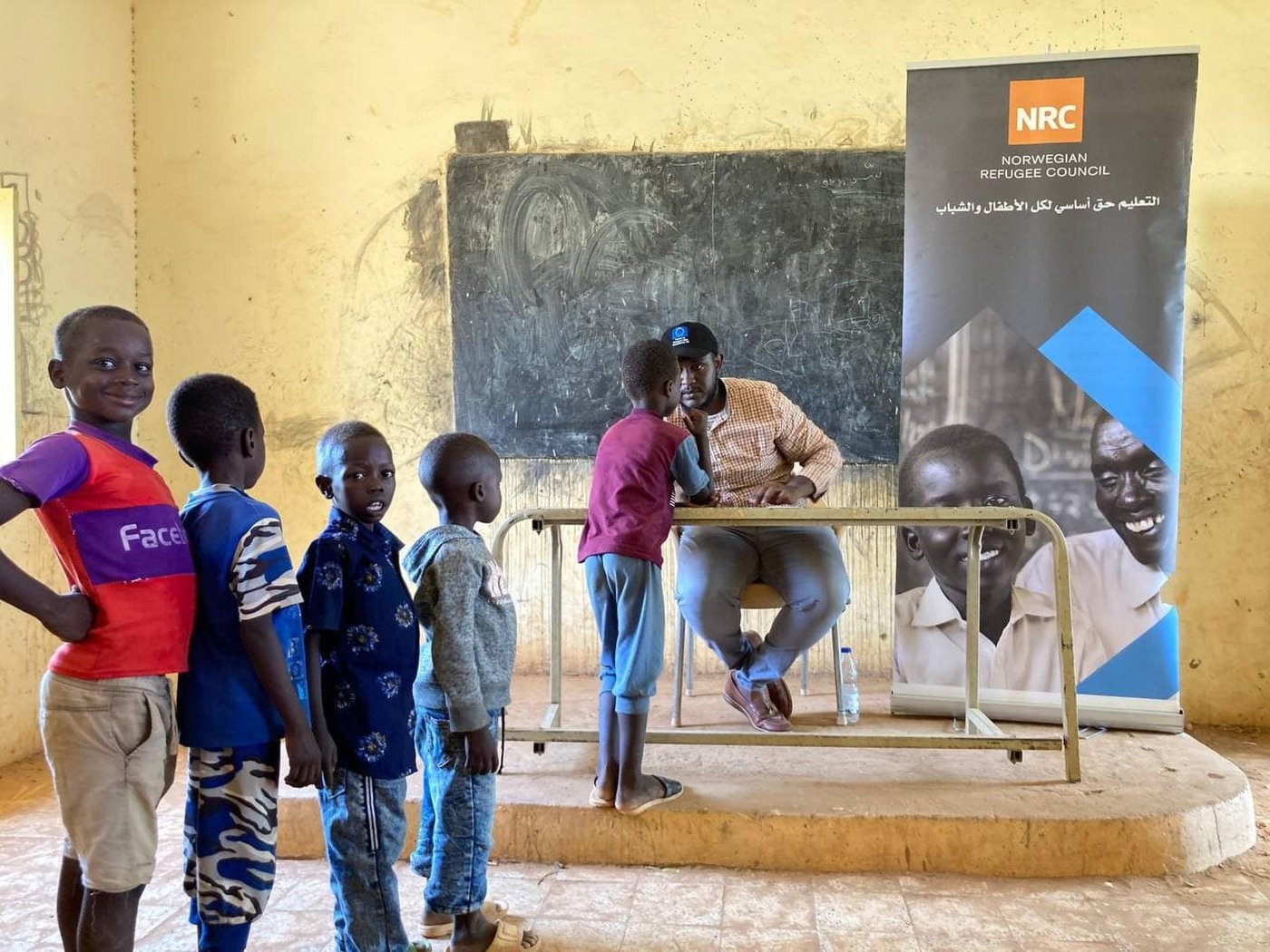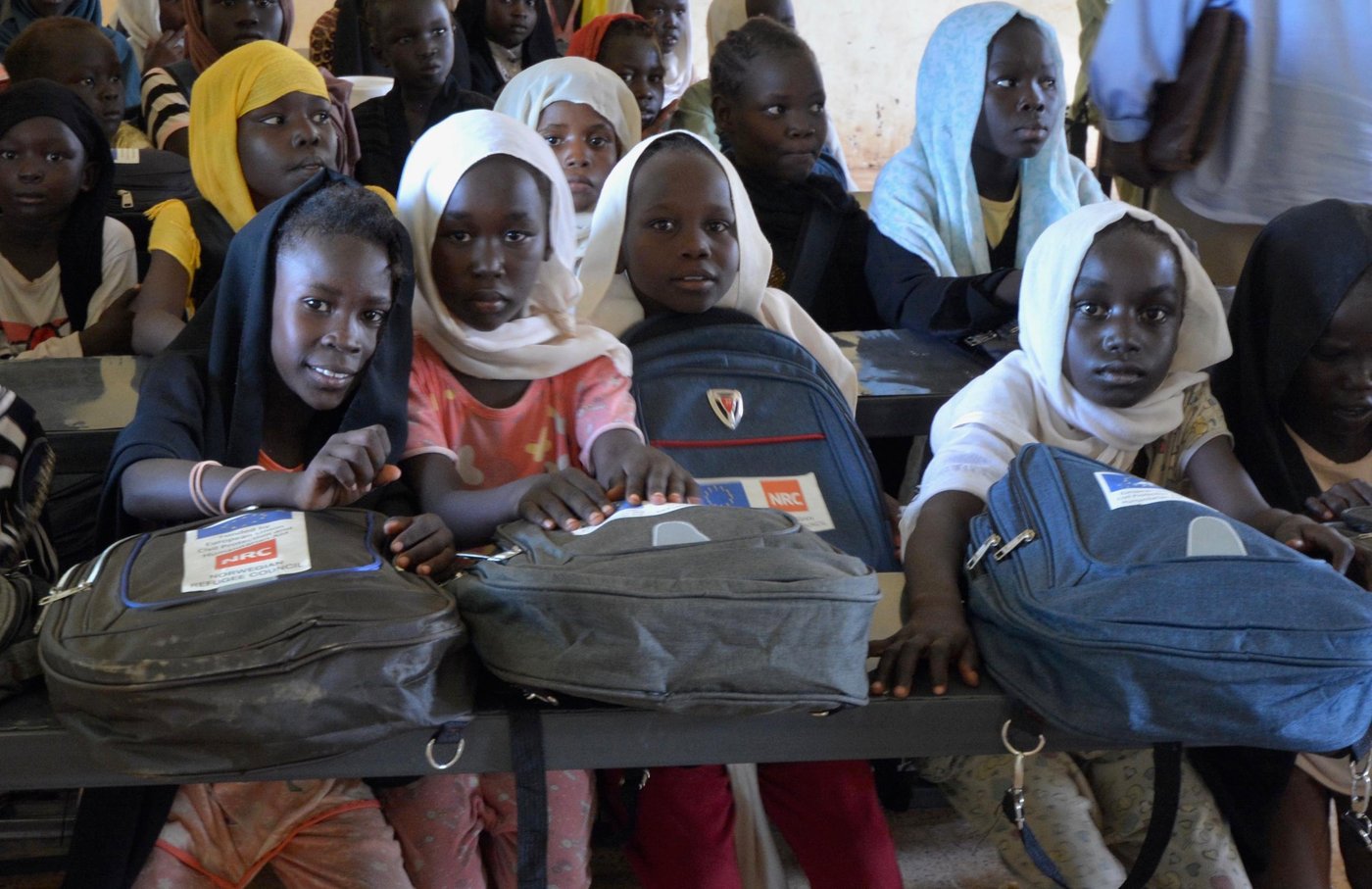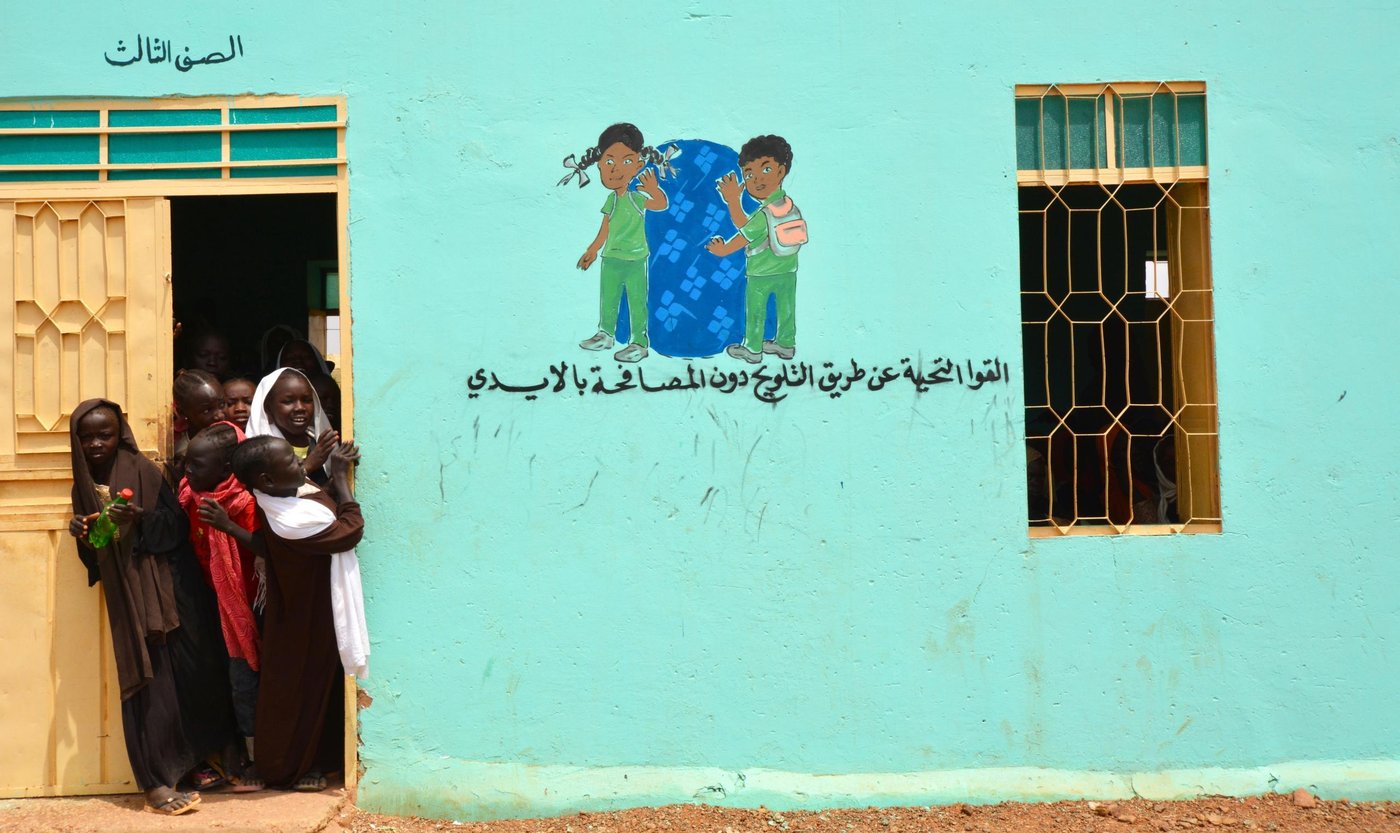“My niece latched onto my leg until she took the bag. She was so happy,” says Siddiga.
Siddiga and her niece are among the 11,000 students and 180 teachers benefitting from an education project run by NRC, with generous assistance from the European Union. The goal is to help improve access to education for children in communities on the outskirts of Khartoum affected by displacement.
In addition to distributing school materials, the project has rehabilitated school buildings, upgraded latrines, and established handwashing facilities to support the safe re-opening of schools amidst the Covid-19 pandemic.
NRC works to support refugees and displaced people in over 30 countries around the world, including Sudan. Support our work today
Needs are mounting
Since the 1970s, Khartoum has been a destination for migrants and refugees from neighbouring countries, as well as people displaced within Sudan who are seeking safety and protection.
As an economic centre of Sudan and northern Africa, Khartoum has seen huge population growth, particularly on its outskirts. But services haven't kept up with the population boom, leading to mounting social needs in the community.
Trouble accessing education
Education, healthcare and other services remain clustered in Khartoum’s centre and are scarce in the surrounding areas. Formal schools are often overcrowded, and government support has dwindled. The economic crisis in Sudan means even less money for schools. Skyrocketing inflation of 422 per cent means that parents struggle to afford school fees.
“When families don’t have sufficient resources to buy food, usually education is not a priority,” said Catherine Mercy, NRC Sudan’s education programme development manager.
“If accessing education causes families to spend money on notebooks, bags, and other things, the child will sit at home. We provide some of these materials that help families send their children to school.”

Transforming the schools
Prior to the rehabilitation, the green colour of the walls was the only way to distinguish Al Salam Village School from the surrounding brown mud houses. Classrooms were crammed with up to 100 children at a time. A door and four small windows were the only sources of ventilation and light. Children piled up in the darkness to attend class.
“The school was falling apart,” says Siddiga. “Classrooms would be so full that students had to attend by listening through the window while standing outside in the sun. Those who found a spot inside, sat on the floor. The blackboards had holes in them, and we couldn’t even write full sentences.”
Now, children have larger classrooms, new latrines, school supplies, and benches, desks and chairs. Freshly painted walls display key health and hygiene messages.
“The children finally have something to sit on,” Saddiga said. “We don’t find them spending their lunch break inside the classroom to rest their heads from the sun anymore.”

Support for girls
Starting in sixth grade, NRC and ECHO provide female students with hygiene kits with locally produced, reusable sanitary pads.
The economic inflation in Sudan has made it especially difficult for girls to consistently attend school during their periods. Sanitary products are usually imported, expensive, and inaccessible to most girls. Some girls resort to using rags, which cause strong odours, infections and long-term health issues. Young women find themselves in a conundrum of navigating school and health, which is compounded by the social stigma of menstruation.
“A lot of my female students cannot attend every month when they’re menstruating. Not just because of the pain, but also due to the embarrassment they feel,” said Siddiga. In previous years, her classroom was like a rotating cast of empty chairs where girls were consistently absent every month. But the hygiene kits have changed this.
“Now, the absences of the girls have significantly decreased.”
Maximising children’s learning potential
Research suggests that students need to be comfortable to learn effectively. For schools in disadvantaged neighbourhoods, like Al Salam Village School, many of the children are pressured to work tiring days in the markets after school to help their families. Improving the school environment has helped boost the children’s motivation and engagement. The project has transformed the classroom into a comfortable, safe place to absorb knowledge, dream and play.
As the population continues to swell around the edges of Khartoum, initiatives like this will continue to play a crucial role in shaping education outcomes for children affected by displacement.


